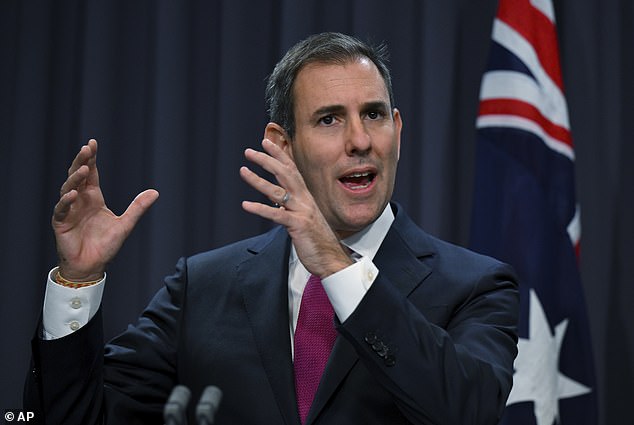What you need to know about new tax rules on superannuation earnings as Anthony Albanese’s govt prepares to crack down on big balances
The government plans to introduce new tax rules for Australians who have more than $3 million in retirement savings from 2025.
The aim is to raise more revenue and create a fairer system, with draft legislation for the changes to tax breaks unveiled by Treasurer Jim Chalmers on Tuesday.
Dr. Chalmers said everyone would still receive super tax breaks under the changes, but concessions would be less generous for balances over $3 million.
“Australians are making tough choices at the kitchen table, and it’s important the government does the same at the Cabinet table,” he said.
But the opposition has accused the federal government of breaking an election promise by tinkering with super tax institutions and is expected to fight the changes.
Here’s everything you need to know about the changes.
What are the tax changes?
The legislation will double the tax from 15 percent to 30 percent on income from retirement account balances over $3 million.
The changes to tax benefits are expected to come into effect in 2025, after the next elections.
The richest 0.5 percent of the population would see their concessional tax rate on super contributions double to 30 percent from 2025 (stock image)
How will the tax be applied?
Your retirement account income is calculated by looking at how much your account grows from the beginning to the end of the year. This growth is taxed at 15 percent.
It is important to know that during the accumulation phase, income is already taxed at 15 percent, so this is an additional tax on top of that.
If you have more than €3 million in your account, this additional tax applies. This $3 million limit will not increase with inflation, so over time more people could be affected.
How to pay the tax?
Aussies have two options for paying the tax. They can use the money from their retirement accounts to pay taxes, or they can pay it directly from their own funds.
Who will it affect?
The government claims the proposal would impact 80,000 Australians; around 0.5 per cent of people with super funds currently have a balance of more than $3 million.
But the Financial Services Council, which represents retail super funds, argued this would hurt 500,000 people over the coming decades, including 204,000 who are now under 30, unless inflation is indexed.
The changes will apply to self-managed super funds, APRA regulated funds and exempt public sector schemes.
Modeling shows it will raise $2 billion in revenue in its first year.
The higher tax rate will also apply to unrealized gains on the value of super funds during the financial year, in a first for the Australian tax system.
The Ministry of Finance has stated that the introduction of the new tax regime is necessary to tackle individuals who use pensions as a means to minimize their taxes and for estate planning purposes.
But Peter Burgess, chief executive of Self Manged Super Association, argued that taxing unrealized profits was ‘not the solution’.
“While the association does not support super members with excessively large balances who receive generous super tax benefits, taxing unrealized gains is not the answer,” Burgess said.
“It will give rise to many unintended consequences, goes against the long-standing principles of our tax system and will result in outcomes that are inconsistent with the stated purpose of this new tax.”
‘The stated purpose of clawing back tax benefits granted to wealthy senior citizens is to reduce the revenue lost as a result of existing concessions.
“It should not be the case that a new tax is imposed that, for some, not only reverses those concessions, but also results in more tax being paid than would have been the case if there had been no concessions.”

Super industry bodies and investors have raised issues with the idea of taxing unrealized capital gains (stock image)

Treasurer Jim Chalmers (pictured) said everyone would still receive super tax breaks under the changes, but concessions would be less generous for balances over $3 million
Can the government implement the policy?
Without coalition support, the government will need the Greens and key cross-bankers on board.
The Greens want super payments on paid parental leave in return for their support.
Greens women’s spokesperson Larissa Waters said the proposed changes to concessions were more than enough to cover the cost of the super allowance for women on paid parental leave.
“Labor is making women wait for small measures like super-rebate paid parental leave, which would immediately improve economic equality, but can somehow find $313 billion for the third tax cut,” Senator Waters said.
Dr. Chalmers said the government still plans to provide the pension guarantee on paid parental leave “when we can afford it”.
“The Greens can demand anything, they don’t have to run the country and they don’t have to manage the budget,” he told reporters on Tuesday.
He said the government had already extended paid parental leave, at some cost to the budget.
